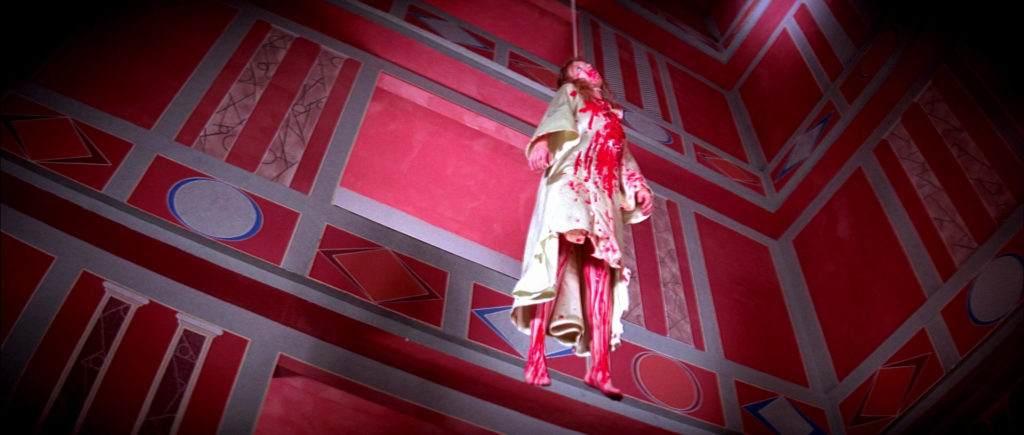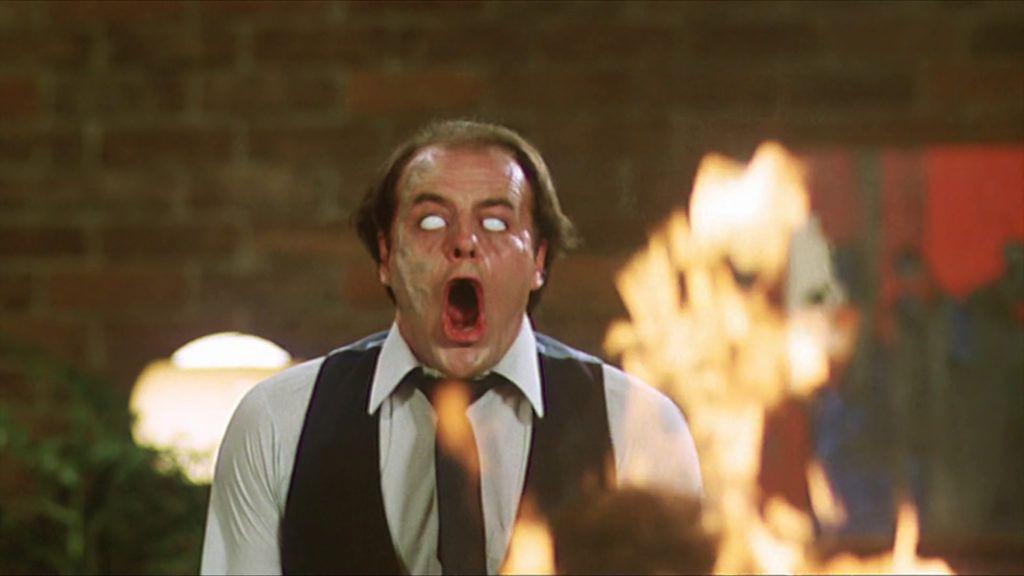Nine Essential Horror Movies
Everybody loves the classics. Every movie genre has list of titles that are considered the granddaddies of the genre. A Roman Holiday (1953, William Wyler) set out the definition of the modern-day chick flick, while Love Story (1970, Arthur Hiller) paved the way for movies like Me Before You (2016, The Sharrock) and The Notebook (2004, Nick Cassavetes) to make it to the mainstream.
For this article, What’s A Geek focuses on nine horror movie titles that have, whether their directors intended for it or not, become the stylebook for movies belonging to their niche. The movies on this list may or may not be the scariest films in existence, but they are important viewing for any self-respecting film fan for their contributions to the genre.
Let’s get started.
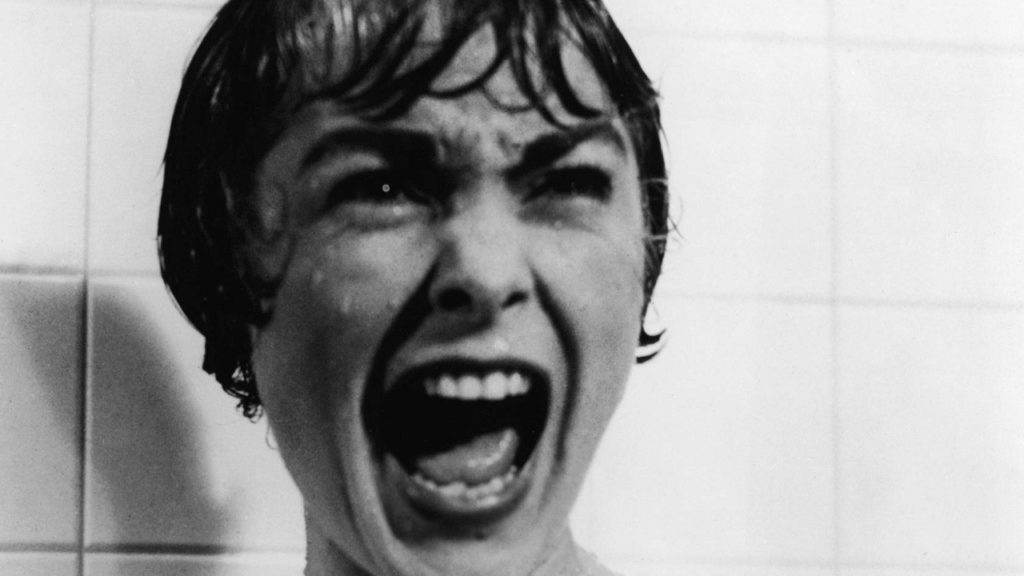
PSYCHO (1960, Alfred Hitchcock)
There’s so much that has already been said and written about Hitchcock’s work that we’ll keep our part brief: it is thanks to Psycho that we have the modern day slasher. Hitchcock adapted and directed Psycho at a plateau point during his career. Considered a departure from Hitchcock’s dramatic stylings, Psycho nonetheless moved on to be one of the best horror movies ever made, full stop, with its intelligent depiction of depravity and violence. As well, with the death of a main character early into the running time, the movie presented a highly sensational and original twist in film-making during the 1960s.
We don’t have to tell you what Psycho is all about; its influence in pop culture is so widespread that even casual filmgoers can relate the gist of its plot without having seen a single scene. To see is to understand, however, and it’s a must for any film enthusiast to watch Psycho at least once.
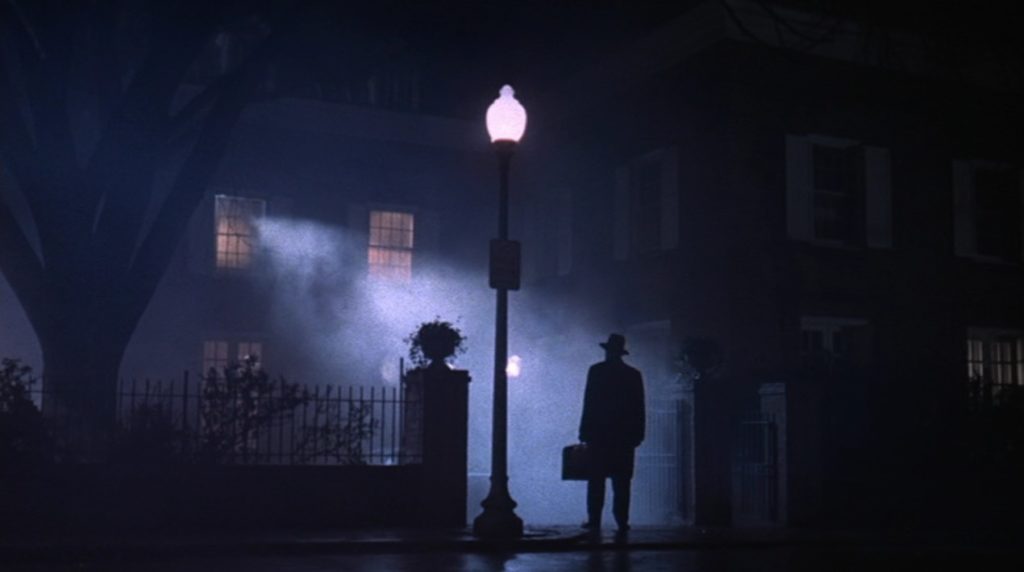
THE EXORCIST (1972, William Friedkin)
What list would be complete without this time-enduring gem of horror? A delightfully graphic piece of practical effects set against a backdrop of religious fervor, The Exorcist pioneered the “based on a true story” format in horror, without insulting its viewers. The controversy surrounding it behind the scenes also added to the myth of the film being legitimately cursed. Movies like The Ring (1998 or 2002, Hideo Nakata or Gore Verbinski) borrow from The Exorcist‘s notoriety, just as movies like Insidious (2010, Leigh Wannell) and The Conjuring (2013, James Wan) borrow from the framework set out by William Friedkin’s directing.
If nothing else, watching Linda Blair’s head spin is a rite of passage for any horror movie enthusiast.
THE LAST HOUSE ON THE LEFT (1973, Wes Craven)
Revenge horror is a divisive subgenre even within the community. Some hate it, some love it, but if there’s something every horror fan could agree on it’s that Wes Craven left an indelible mark on the subgenre with 1973’s The Last House on The Left. Heavily censored to the point of being banned in some countries, this adaptation of an adaptation (the movie was based on a Swedish thriller) tested its audience on torture tolerance and moral endurance.
Whether you’re watching the 1973 version or the 2009 remake, The Last House on The Left isn’t an easy movie to watch. There’s rape. There’s a mindful and cruel method to the violence presented in the film. It’s not quite gore porn, but Wes Craven originated so much of the tropes for the subgenre that he may as well have thumbprinted the modern gore porn movie.
HALLOWEEN (1978, John Carpenter) & THE NIGHTMARE ON ELM STREET (1984, Wes Craven)
The 70’s were great for horror fans. Halloween and The Nightmare of Elm Street were dominating the scene, Romero was experiencing a resurgence in his career, and the horror scene was cranking out movies left and right while tackling vampires, zombies, werewolves, and so much more. Michael Jackson’s Thriller album even provided a theme song for all Halloweens to come.
Truthfully, each movie deserves to have their own category, but Michael Myers and Freddy Kreuger have become so inseparable from each other’s canon (for good or for bad) that separating them seems irresponsible. Michael and Freddy were two sides of the same B-movie villain coin – the silent killer versus the gloating maniac, the bull in a china shop versus the creative death auteur. Then there’s the definitive Final Girls, Heather Langenkamp and Jamie Lee Curtis, whose screams were the soundtrack to so many dates from the ’70s and onwards.
The 1970’s camp horror will always feel incomplete without these two movies; why not just have them both together?
SUSPIRIA (1977, Dario Argento)
Dario Argento, for uninitiated, is one of the fathers of the often-reviled gore horror subgenre, and is considered the heir apparent to gore-fathers Lucio Fulci and Herschell Gordon Lewis. Argento’s films are a great introduction to the 1970’s horror scene; his movies were highly visual despite the budget, financial constraints necessitating set design and camera work to be creative with a limited stage or location. The resulting works’ influence can be seen everywhere today in horror: scenes like the now-familiar tracking shots of the lone victim running through the woods at night and the trend of eye-popping murders in the first ten minutes owe their beginnings to Argento’s marriage of giallo performance art and spaghetti western standards into a legitimate Italian horror movement.
No other movie in Argento’s filmography completely encapsulates the best of his directing and visual style like Suspiria. The movie is as much a direct precursor to Winding Refn’s The Neon Demon as it is for Guillermo del Toro’s Crimson Peak.
Suspiria, a story about an American girl moving to a German dancing school, could easily fit and devour alive the modern “final girl” horror movies. Suzy Bannion, depicted with wide-eyed wonder by Jessica Harper, comes into the movie fully realized to a degree that remains uncommon even in the modern-day horror movie. The movie takes its time in setting up its acts, allowing scenes to soak in the claustrophobic atmosphere of the set. The payoff is intense, and the very final moments of the movie are beautiful to watch.
SCANNERS (1981, David Cronenberg)
David Cronenberg doesn’t get as much recognition as he should. Though considered a father to the “body horror” subgenre of horror movies, his filmography remains stuck in relative obscurity – which is a shame, because his movies revel in Kafka-esque portrayals of the human mind as much as they explore the physical horrors of the body.
It would be easy to cite Cronenberg’s seminal 1986 film The Fly, after that segue. However, the 1981 film Scanners is a more subtle and underrated piece in Cronenberg’s repertoire; the horror occurs, quite literally, within the mind. Set in a world where a minority within the population possesses destructive telepathic powers, Scanners holds up to the test of time with its depiction of a society that manipulates fear in exchange for power. It’s a message that remains relevant to this day.
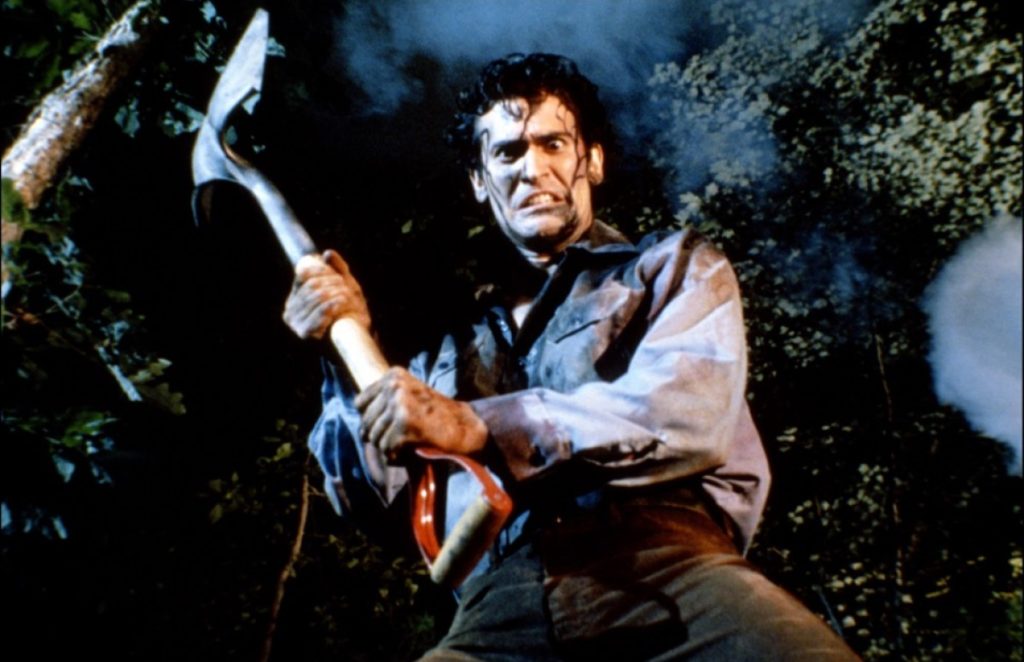
THE EVIL DEAD (1981, Sam Raimi)
Raimi’s little horror adventure was as straightforward as horror movies could get – five friends go up to a cabin in the woods for a getaway, only to find themselves needing to get away from all kinds of horror. It’s a very simple premise, but a highly effective one, and horror movies since have been riffing off The Evil Dead ever since.
The remarkable thing about The Evil Dead isn’t to do with its exceptional special effects, or its infamously graphic violence – it’s its gleeful willingness to not take its premise seriously. The Evil Dead is equally terrifying and funny during a period in film history where coming-of-age films, suburban thrillers, and Harrison Ford reigned supreme.
Hilariously irreverent to its time period and to viewer sensibilities in general, The Evil Dead carved the way for Shaun of The Dead and Cabin in The Woods for future generations.

THE BLAIR WITCH PROJECT (1999, Daniel Myrick and Eduardo Sanchez)
Myrick and Sanchez may seem like trivia night answers for the pop culture section, but their little project has single-handedly launched an entire genre of horror movies. Documentary-style horror hadn’t been done with the same degree of dedication and attention to detail as The Blair Witch Project had back in the ’90s.
It wasn’t the first movie to do found footage (that honor goes to Antonio Ruggiero’s Cannibal Holocaust), or the first to present fiction as non-fiction (Orson Welles’ adaptation of War of The Worlds owns this distinction). However, The Blair Witch Project was such an unplanned success that several movie franchises have tried, again and again, to replicate it.
The Blair Witch Project cast several unknowns, and relied heavily on improv acting, inspiring another subgenre of horror along the way (mumblecore horror). Told from the hand-held camera perspective of three film students as they slowly descend into supernatural madness in Burkittsville, Maryland, the film teeters in perfect balance between a psychological thriller and a witchy whodunit. While actual scares may be subject to a viewer’s willingness to suspend belief, the craftmanship of The Blair Witch Project remains to be the most raw and intricate of horror movies made within the last fifty years.
Need help watching these movies? Don’t worry. We have a guide on how to survive horror movies.





